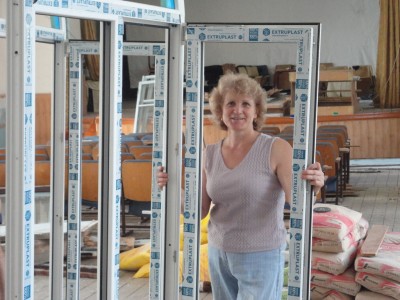
To tackle climate change, the focus should be on local solutions that create sustainable, green development.
While climate change is about saving the planet, sustainable development is about saving our local forests and fisheries, using renewable resources to provide energy to remote communities or increase energy security by reducing imports of fossil fuels.People can feel the positive effects of concrete actions taken in their local communities in their everyday life, and that’s a strong incentive.
Sustainable development is about using resources to promote economic development for the current generation while leaving resources intact for future generations.
What we need to achieve sustainability is for local leaders (formal and informal) to be convinced that it’s the best way to improve the quality of life in their territories. Then they will take it upon themselves to convince members of their communities and local businesses to jump on board.
That’s why the Network of Associations of Local Authorities of South-East Europe (NALAS) organized a meeting of mayors to put sustainable development and climate change on the agenda of local governments. NALAS is following in the footsteps of big-city mayors that met in Rio through C40 Cities. New York City Mayor Michael Bloomberg said that as innovators and practitioners, cities are at the forefront of sustainable development and climate change. The mayors said that through improved waste management, efficient lighting, and green city transportation, cities are on track to reduce their combined greenhouse gas emissions by 248 million tonnes by 2020.
Back in South-East Europe…
The location of the NALAS meeting was quite appropriate: in Tulcea, Romania, home to the arid Măcin Mountains that are some of the oldest in Europe, and the Danube Delta which is the “newest” land in Europe, formed over the past 10,000 years from sandbars in the Black Sea and sediments from the Danube River.
“We are in Mother Nature’s home,” said Tulcea Mayor Constantin Hogea. Climate change is an important and painful topic for Tulcea where the threat of floods, tornadoes and even desertification are all too real.
But somehow it’s still an uphill battle to talk about climate change with many mayors in South-East Europe. “Ninety-five percent of mayors would laugh in your face if you talked about climate change in Albania because of the immediate needs they are addressing and above all the priority of economic development,” says Fatos Hadaj, Secretary General of the Association of Albanian Municipalities.
In Moldova, where 98 percent of final energy consumption is imported, energy efficiency and finding local energy sources is a matter of economic security as much as an approach to climate change mitigation.
Even in this context, most local authorities are not aware of what they can and should do to promote energy efficiency and biomass energy, says Mayor Tatiana Badan, President of the Congress of Local Authorities of Moldova.
Vice-President of the Congress of Local and Regional Authorities of Europe, Ludmila Sfirloaga, believes that the only lasting response to climate change lies in building a sustainable environment at the grassroots level – changing consumption patterns and a new energy culture. She said that although local governments are part of the problem, they are also part of the solution.